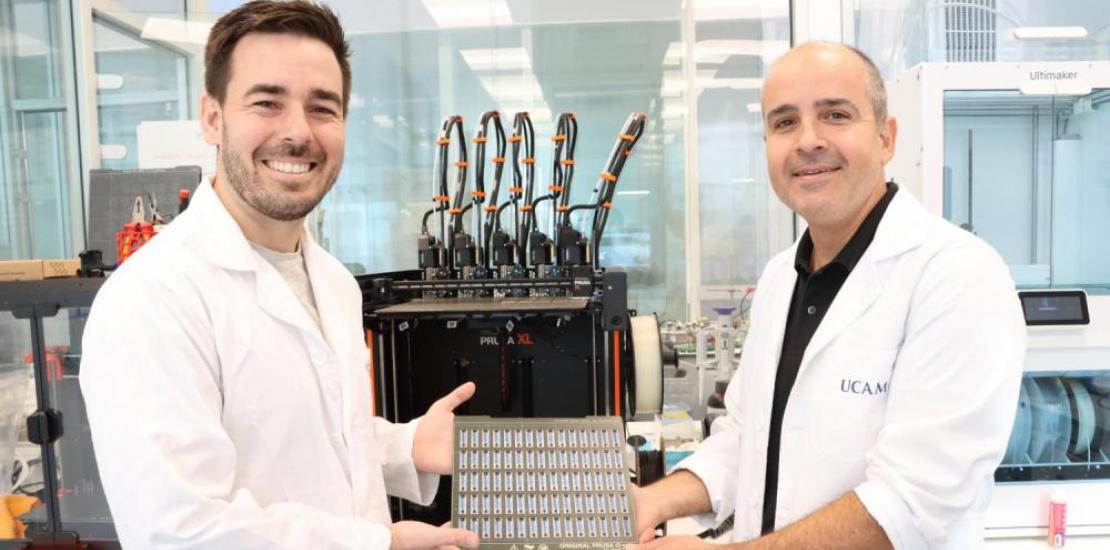UCAM SENS internationally recognised for its advances in sensors
The prestigious journal Analytical Chemistry has taken to its cover one of his research in which they have generated the first low-cost potentiometric sensors using 3D printing.
Researchers at the Chemical Sensors Unit of the Universidad Católica de Murcia (UCAM-SENS) Daniel Rojas, Darío Torricelli, Gastón Crespo and María Cuartero have achieved an important breakthrough in the manufacture of sensors, which opens the door to new applications such as portable medical devices or water and food quality control. In addition, the research has been on the cover of the October issue of one of the most prestigious chemistry journals in the world, Analytical Chemistry.
The team has adapted the design of traditional potentiometric sensors to 3D printing, making them highly consistent, working equally well with each other, which is essential for reliability.
In addition, the results show that commercial 3D printing filaments, a mixture of plastic and carbon, effectively convert chemical signals into electronic ones, which improves the efficiency of the sensor. This breakthrough in sensor manufacturing is expected to revolutionise their use in multiple sectors, from healthcare to environmental technology.
More affordable
Further advantages of this sensor manufacturing technology are: its speed (up to 75 sensors in only 3.5 hours), low cost (only €0.32 per unit) and the ability to customise them, which is unthinkable with traditional techniques. This development makes them easy to produce in large quantities and at very affordable prices, which is ideal to be used in disposable devices or in places with few resources.
‘Until now no one had tried to produce potentiometric sensors using 3D printing, but we have found a winning combination, reducing costs and allowing freedom of design and customisation,’ says Daniel Rojas, first author of the paper, who also stresses that after the development of this project ‘we know how to further improve the properties of these sensors, so we hope this will be the first of many contributions in this field’. Gastón Crespo, co-director of UCAM-SENS, adds that ‘we are pioneers in the incorporation of these strategies, and we intend to lead a paradigm shift in the decentralisation of the chemical information obtained by the sensors’.




